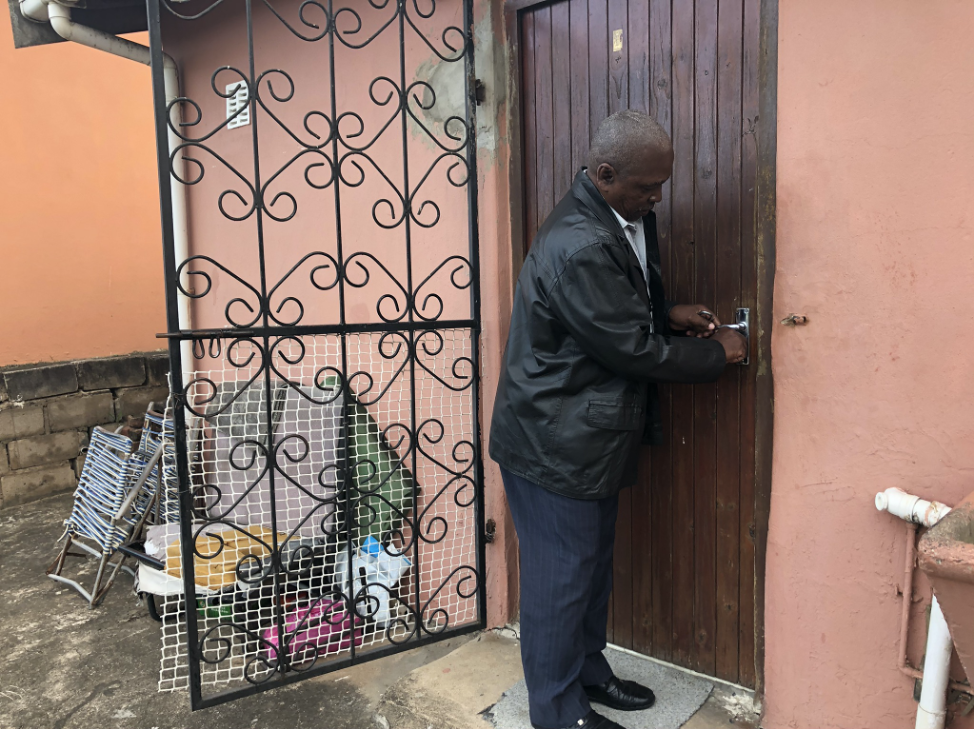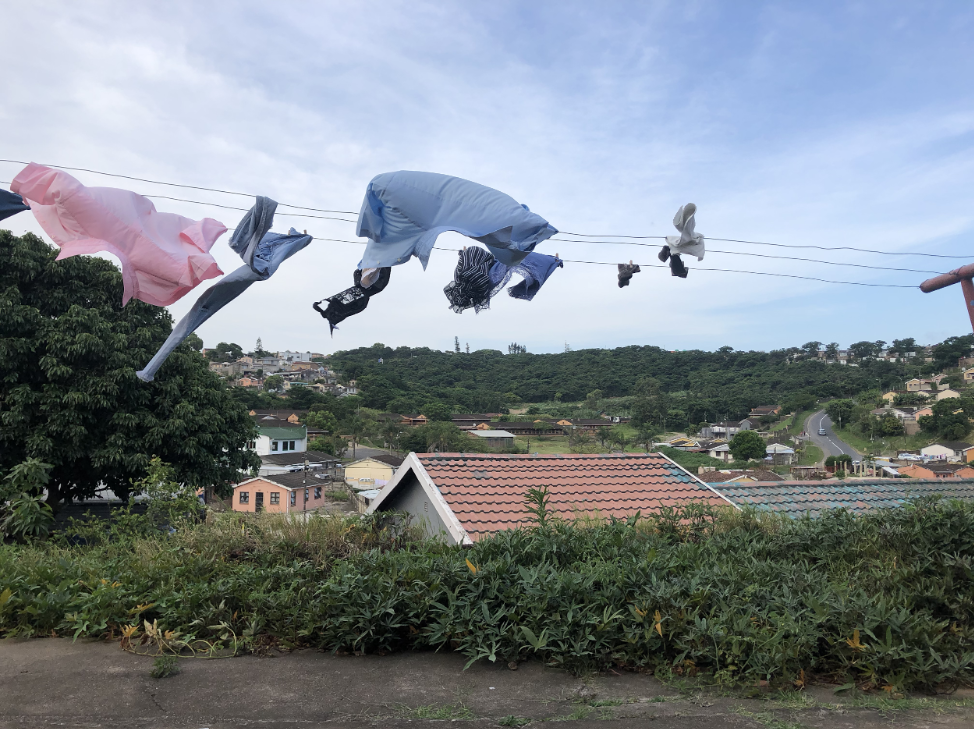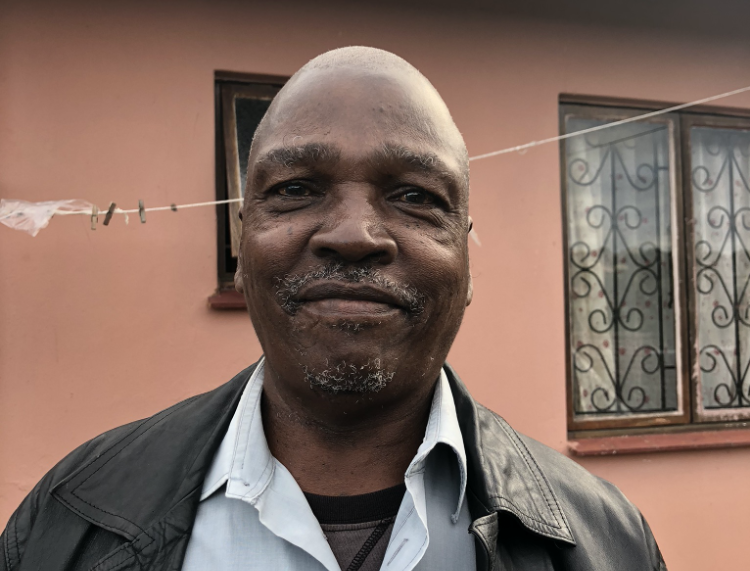By Ainsley Ash
Many South Africans tell stories that have a marker: before and after democracy.
Albert Thabede remembers the earlier time well.
“Things were very, very bad,” he says, when he could not leave his house without his dompas.
But Thabede prefers a different before-and-after story: before and after a Monday morning in 1986.
“I was going to work. The man was preaching on a train. And then something [started] happening to me,” Thabede says slowly, staring into the distance that is the conglomerate of palm trees and pink houses and slumping clothes lines and vocal white taxis. He is sitting in a rusted folding chair on the back porch, and I am sitting beside him in a dilapidated seat covered with a piece of grey carpet.

“He was preaching … Jesus. Then, my eyes were red. I was crying. I didn’t know what was happening to me,” he says matter-of-factly, with a crooked bright white smile on his face.
His eyes are black, rimmed with a faint blue colour. Possibly from old age. He is 73 after all. Today he is wearing a grey-blue shirt with denim pants to match. He no longer has girlfriends or drinks Zulu beer, he says, unlike the men in his culture who do not know Jesus.
I try to imagine a younger man with wholly black eyes overcome with emotion on the train to work. I struggle to remove the deep wrinkles lining his smile, and the white hair dotting his beard. [[lovely image]]
Every Sunday morning and every Wednesday night, Thabede can be found in only one place: his church in Cato Manor. It’s where he finds his friends, his family, and his god. The congregation sings hymns half in Zulu and half in English. Baba confesses that he does not know all of the English words.
“Abancane kuYe bangabakhe… Babuthakathaka kepha Unamandla… Yes, Jesus loves me,” Thabede hums, and I hum along.
“That’s my favorite song,” he informs me. I agree. It is a lovely song.

Even though Thabede is aging and his knees give him fits, he does not fear death, he says. He has done what he felt he was supposed to do: get a job, get a wife, and find his god. He does not seek wisdom or luck from prophets or ancestors or “grannies”.
“They say you get your job, because your grannies gave it to you. I don’t believe that now… I only believe in god,” he states with the wisdom of an older man with kind, blue-rimmed eyes.




